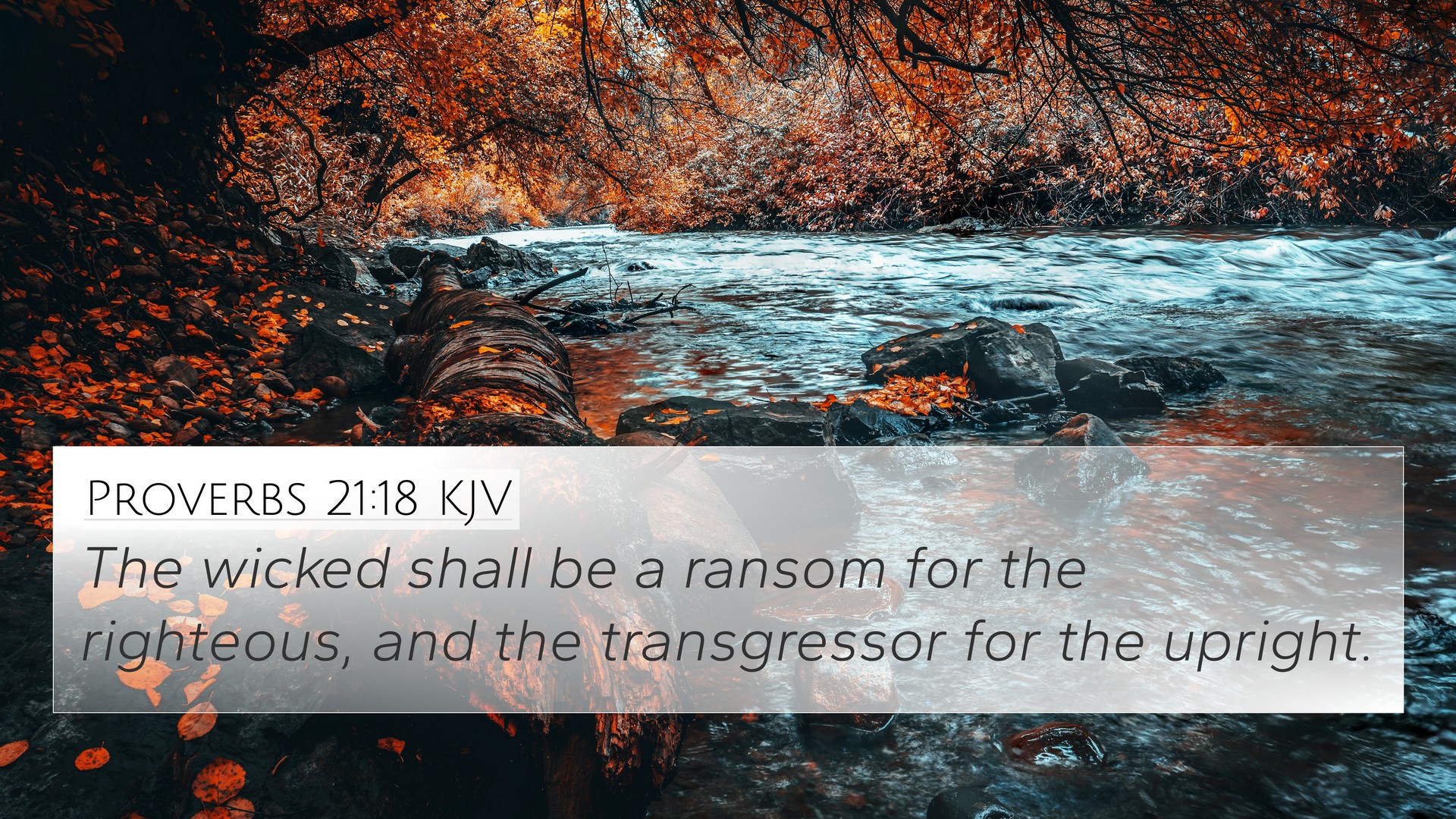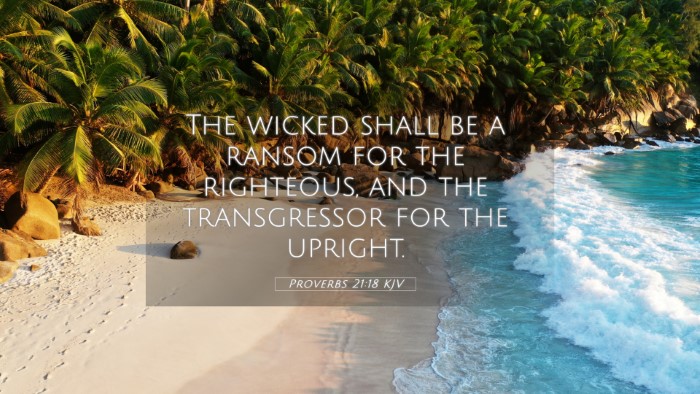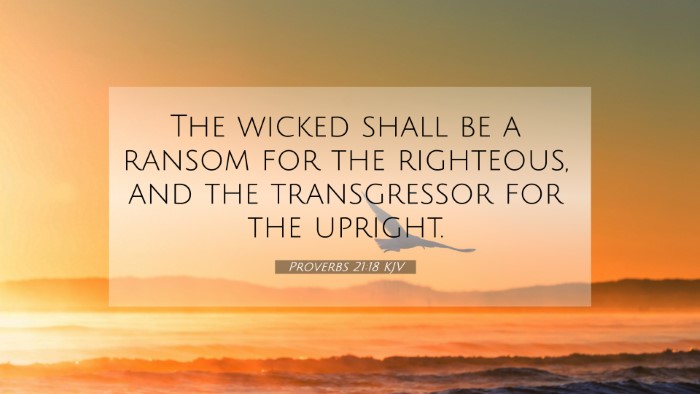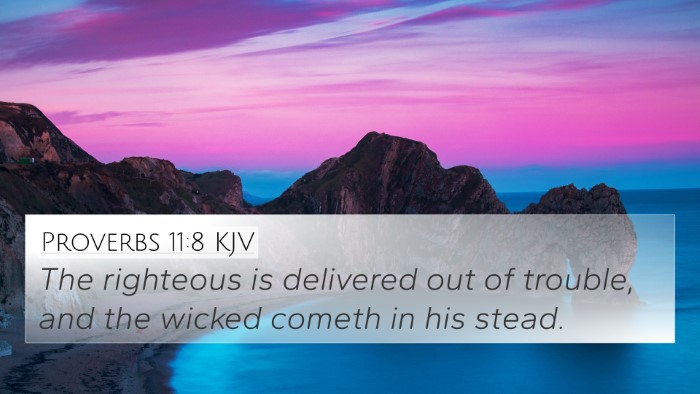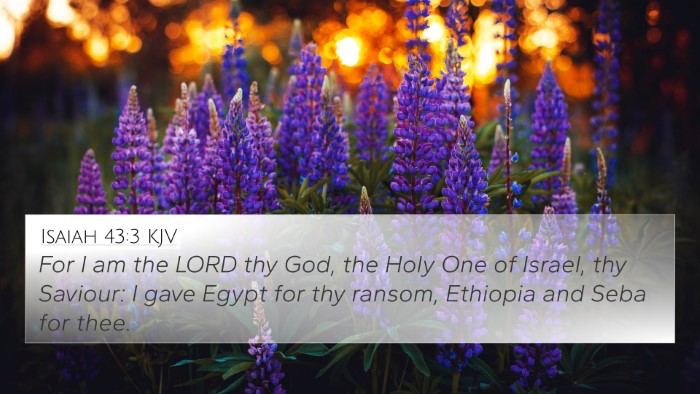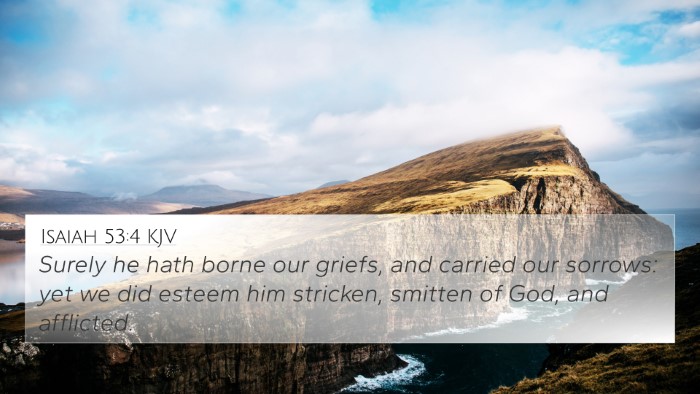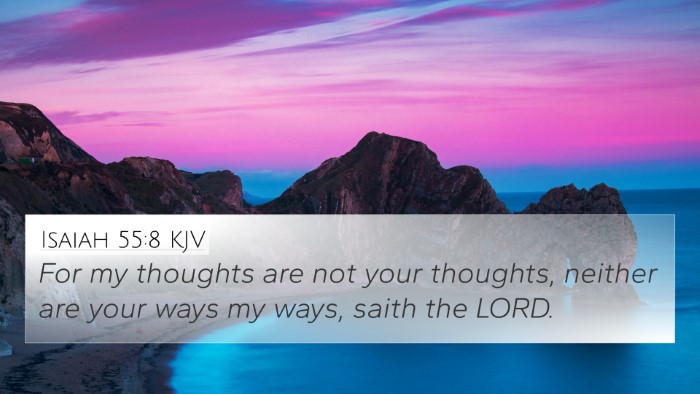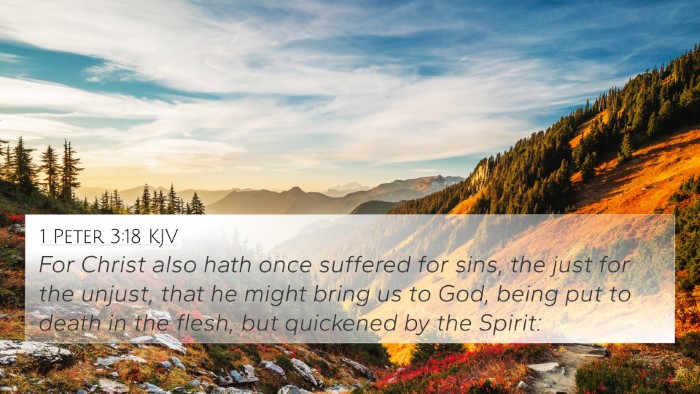Understanding Proverbs 21:18
Proverbs 21:18 states: "The wicked shall be a ransom for the righteous, and the transgressor for the upright." This verse presents a profound truth about justice and retribution in the realm of morality.
Verse Meaning and Explanation
This verse implies a divine justice where the fate of the wicked serves to benefit the righteous. The overarching theme here is that evil does not go unpunished, and instead, it often aids in the deliverance or safety of the upright. This principle can also elucidate the broader scriptural themes of redemption and sacrifice, showing how one’s demise can lead to the betterment of the innocent.
Insights from Commentators
- Matthew Henry: Henry notes that the righteous may sometimes appear to suffer while the wicked prosper, yet ultimately, God’s justice prevails where the wicked serve as a substitute for the righteous in their punishment. He emphasizes the eventual triumph of good over evil.
- Albert Barnes: Barnes highlights that the meaning of the term "ransom" suggests a substitutionary principle. The punishment of the wicked can act as a deterrent and serves the purpose of maintaining moral order in society, thus protecting the upright.
- Adam Clarke: Clarke takes a more practical approach by explaining that societal justice reflects the divine order. Those who pursue a path of evil invariably bring about their demise, benefiting the moral fabric of the community.
Bible Verse Cross-References
Proverbs 21:18 is enriched by various other scripture passages that reflect upon themes of justice, retribution, and the relationships between righteousness and wickedness. Here are 10 cross-references that deepen our understanding of this verse:
- Psalm 37:22: "For those blessed by the Lord will inherit the land, but those cursed will be destroyed." This illustrates the contrast between the righteous and the wicked.
- Isaiah 53:5: "But he was pierced for our transgressions; he was crushed for our iniquities." This shows how suffering can be redemptive.
- Galatians 6:7: "Do not be deceived: God is not mocked; for whatever a man sows, that he will also reap." This reinforces the concept of divine justice.
- Romans 3:23: "For all have sinned and fall short of the glory of God." This connects with the idea of transgressors and their fate.
- Proverbs 11:21: "Though they join forces, the wicked will not go unpunished; but the posterity of the righteous will be delivered." This further emphasizes God’s justice.
- Job 31:3: "Does not destruction come to the wicked, and disaster to the workers of iniquity?" A call to acknowledge inevitable judgment.
- Matthew 5:45: "For he makes his sun rise on the evil and on the good." This verse reflects on how goodness shines upon both, yet the accountability remains in the divine plan.
- 1 Peter 3:12: "For the eyes of the Lord are on the righteous, and his ears are open to their prayers; but the face of the Lord is against those who do evil." This underscores the protective nature of God over the righteous.
- Proverbs 14:32: "The wicked is driven away in his wickedness: but the righteous hath hope in his death." Hope is a major theme here for the upright.
- Ecclesiastes 8:14: "There is a vanity which is done upon the earth; that there be just men, unto whom it happeneth according to the work of the wicked." This reflects on the perplexities of divine justice while affirming that such paradoxes serve a divine purpose.
Connections Between Bible Verses
In our examination of Proverbs 21:18, we uncover thematic connections with the above verses, illustrating the broader biblical principle of justice and morality. By undertaking comparative Bible verse analysis, we can see how each passage speaks to God's overarching sovereignty and the ultimate fate of both the righteous and the wicked. The themes of retribution and hope are interwoven throughout these scriptures, offering insight into God's nature as both a judge and a protector.
Tools for Bible Cross-Referencing
To facilitate deeper understanding of scripture such as Proverbs 21:18, utilizing a Bible cross-reference guide can be invaluable. Tools like Bible concordances and comprehensive Bible cross-reference materials provide a means to delve into interconnected themes, promoting a richer study experience. Engaging with cross-referencing Bible study methods enables one to explore biblical texts dynamically, enhancing comprehension of how verses relate to one another.
Conclusion
As we reflect on Proverbs 21:18, it becomes evident that the verse serves as a crucial linchpin in understanding divine justice and moral order in the Biblical narrative. Through the examination of its meaning and connections with other scriptures, we come to appreciate the holistic view of righteousness versus wickedness that permeates throughout the Bible. Studying the scriptural cross-referencing of this verse sheds light on the inter-Biblical dialogue that enriches our faith and understanding of God’s justice.
